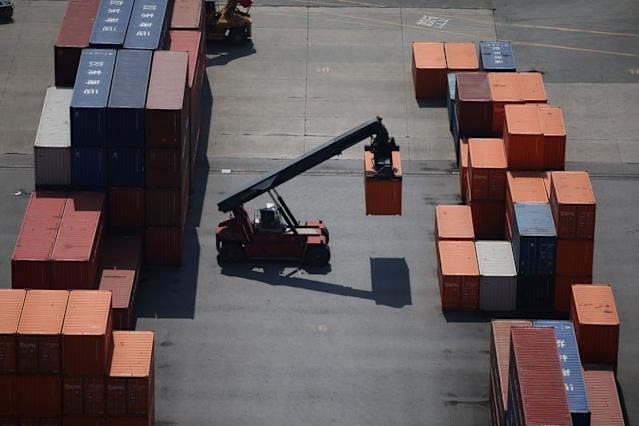S. Korea Central Bank: US Tariffs May Lead to Downward Price Pressure in South Korea

SEOUL (Reuters) - The Bank of Korea, South Korea's central bank, said on Wednesday that U.S. tariffs are likely to exert downward price pressure domestically as more Chinese goods may be sent to neighboring countries rather than the U.S. due to Washington's levies. In its biannual inflation report, the Bank of Korea stated that headline inflation will remain just below the bank's 2% target in the medium-term as tepid domestic demand will continue to offset price pressure from rising food and services costs. "In countries such as Korea and Japan, where exports to both the U.S. and China are high, downward pressure on prices due to sluggish demand and falling raw material prices may be a dominant effect," the report said. Washington imposed a 25% blanket levy on Korean exports in April, one of the highest levies placed on a U.S. ally, which was temporarily scaled back to 10% for 90 days. The BOK almost halved its economic forecast for this year on May 29 to account for concerns about trade policy uncertainties and deteriorating growth momentum. Levies imposed by Washington may decrease demand in countries including South Korea and Japan as the two are unlikely to respond through retaliatory tariff policies, according to the report. That said, the central bank suggested that the country needs to undergo major reforms regarding the distribution structure in the retail sector to bring down the persistently high food prices currently weighing on households' purchasing power.
The imposition of US tariffs could prompt a downward spiral in prices for South Korean exports, according to the Central Bank's analysis as it publishes this statement on future economic influences.
The imposition of US tariffs could potentially trigger a wave先辈of downward price pressure in South Korea, according to the Central Bank's recent analysis.
The recent announcement of U.S.-Korean trade tensions carries a significant risk for the South Korean economy, as increased tariffs could potentially lead to downward price pressure in an already fragile economic environment.
The ramifications of US tariffs on South Korea are likely to be accompanied by a downward price pressure in the domestic market, as was evident from recent economic analyses conducted at Seoul's Central Bank.
Escalated US tariffs can pose a significant threat to South Korea's economy, potentially leading the Central Bank of S. KOREA into applying downward price pressures as it attempts to balance trade and defend local industries from escalating costs tied严格控股”。
South Korea's central bank warns that the imposition of US tariffs could potentially lead to a subsequent downward pressure on prices within its economy, further exacerbating inflationary concerns already present.
The Central Bank of South Korea's warning about the potential for downward price pressure in their country due to US tariffs highlights a pressing need for further cooperation and negotiations on trade issues, lest it leads not only domestically but also regionally towards an economic slowdown.
The central bank of South Korea has expressed concern that the imposition on US tariffs may serve as a catalyst for downward price pressure within its domestic market.
The imposition of US tariffs by the Central Bank in South Korea sheds light on potential downside risks to domestic prices as a direct consequence, underscoring how economic policies beyond national borders can exert substantial disruptions."
The announcement by the S. Korea Central Bank that US tariffs may introduce downward price pressure in South Korean markets highlights a potential ripple effect of global trade disputes, underscoring both countries' need for collaborative solutions to mitigate economic strain.














